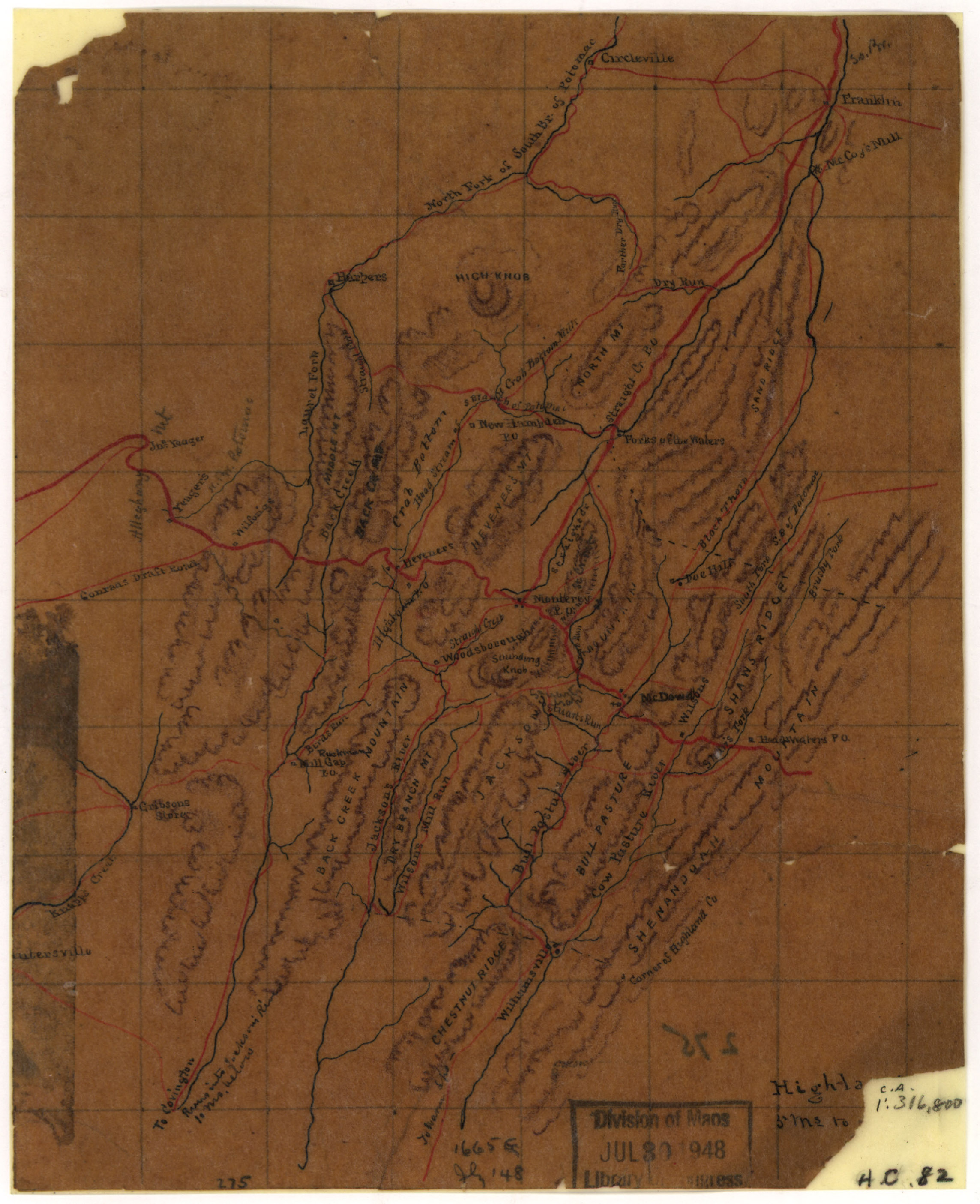|
Moderated by NW Okie! |
Volume 13 , Issue 102011Weekly eZine: (371 subscribers)Subscribe | Unsubscribe Using Desktop... |
Our European Forefathers of Highland County

Last week we spoke about the peculiarities of the European stocks from which the Colonial Americans were derived and what brought them to America (religious and economic reasons).
The English, the Lowland Scotch, the Saxon Irish, the Hollanders, the Germans, and the Swedes were of the Germanic stock, which is cool-blooded and persistent.
The Welsh, the Highland Scotch, and the native Irish were of the Celtic stock, which is more turbulent than the other and more impatient of restraint.
The Huguenots were of the Latin stock, which, like the native Irish, is of warm sensibilities.
The English people had come from the North German coast eleven centuries before, and in this time had grown much away from their German cousins. The Englishman was earnest, dignified, and strong-willed. He was also enterprising, industrious, and a lover of order. Wherever he settles, he never fails to hold his ground.
The Lowland Scotch are shrewd and thrifty, and much less under the influence of aristocratic ideas than their English kinsmen.
The Highland Scotch were at the outset of the seventeenth century a cluster of disorderly clans, each one much given to fighting its neighbors and stealing their cattle.
The Welch were industrious and prosperous, living on good terms with the English.
The Celtic Irish have been much oppressed by their English masters because of their Catholic faith. To this circumstance is largely due their quick wit and their inclination to use words of flattery.
The Saxon Irish are derived from the English who settled around Dublin in the twelfth century. They developed a difference from the English, just as the English developed a difference from the Germans. Edmund Burke, the friend of America in the quarrel with Britain, was one of these people.
The Hollanders resembled both the English and the Germans. They were industrious, thrifty, and progressive.
The Germans from the Rhine had lived under very repressive rule, and because of this fact they were a little slow in getting used to the ways of colonial self-government. These people came almost wholly from the farming and industrial classes. They were peaceable and industrious, yet clannish.
The Huguenots differed from the English in being less stern in disposition, more active in mind, more intense in their affections, more chivalrous to woman, more flexible and hospitable to men and ideas, and more keen and enterprising in matters of business.
The Swedes, an excellent people, were few and were soon absorbed in the population around them.
| View or Add Comments (0 Comments)
| Receive
updates ( subscribers) |
Unsubscribe
| © . Linda Mcgill Wagner - began © 1999 Contact Me | |
